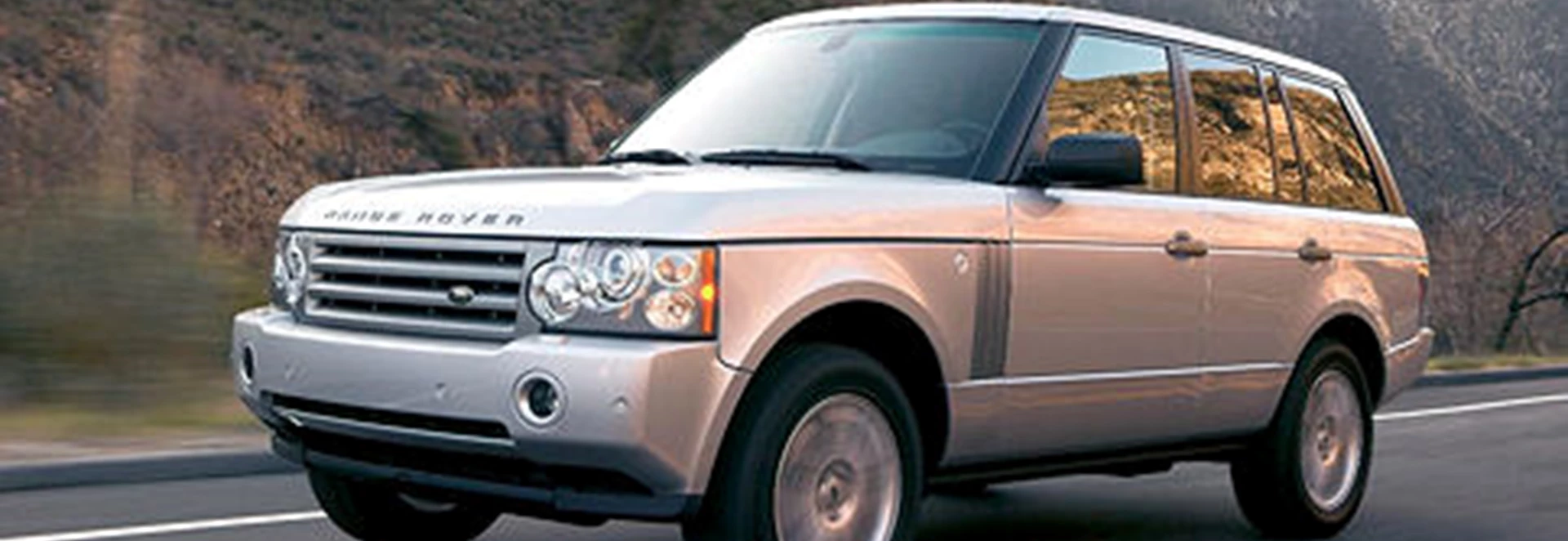The most significant thing about this particular Range Rover is its engine. Ford's decision to add two cylinders to its existing 2.7-litre V6 turbo diesel means that, for the first time in many years, all Range Rovers now have V8 engines, and this particular one must surely be the pick of the bunch.The 2.7 V6 was a coproduction involving both Ford and PSA Peugeot Citroen. Its 3.6 V8 derivative will probably be seen only in Ford and Premier Automotive Group vehicles, since there are no Peugeots or Citroens suitable for it. Extending it by one-third might not seem to be a major task ("just throw another couple of cylinders into this one, Joe") but there was a lot to it, not least because the angle between the cylinders on either side of the vee can't be the same in a V8 as it is in a V6.So there was a lot of re-engineering involved, but it's all worked out splendidly. The 2.7 V6 is a very fine unit, but for a car the size of the Range Rover the 3.6 V8 is more appropriate. It produces 275bhp - well up on the 200bhp or so of the V6 - along with 472lb/ft of torque, and all this is enough to push the car from 0-62mph in 9.2 seconds and on to a top speed of 124mph.If those performance figures seem familiar, you're probably thinking about the 4.4-litre V8 petrol-engined Range Rover, which had a distinct advantage over the old diesel. Now the two cars have the same top speed, and although the TDV8 accelerates a little more slowly, the disadvantage - 0.5 seconds - is hardly worth bothering about.Inevitably, the TDV8 is also much more economical (nearly 25% better on the combined cycle), and it sneaks under 300g/km of CO2 emissions. No other Range Rover comes close to this. Furthermore, although there's normally a premium for diesel cars over their petrol equivalents, the TDV8 is around £1000 cheaper than the 4.4 V8.This should be the best-sounding Range Rover diesel ever, but it's not really. You're aware that there's a V8 burble in there somewhere, but the problem of releasing heat from under the bonnet means that most of what you hear is fan noise, so it's not really distinguishable from the V6 in that respect.It feels a lot quicker, though, as the performance figures suggest. No car of this size is ever going to feel exactly sprightly, but the TDV8 picks up its skirts from very low speeds, accelerates strongly and, once it's reached a motorway cruise, wafts along in a manner that would have seemed impossible for a large diesel SUV as recently as a decade ago.It's also surprisingly good on country roads. That 472lb/ft of torque could have been enough to cause trouble as you try to dig yourself out of a tight, slow corner, but in fact the TDV8 feels completely in control - at least the way I was driving it, which was enthusiastic without being overtly sporting. Like all well set-up large vehicles, this one (more so than other Range Rovers I've driven recently) seems to shrink as the roads get tougher.Without actually having tried it, I dare say the TDV8 is at least as competent as everything else in the range off-road. That's probably irrelevant, though, since Land Rover's marketing strategy for the Range Rover is entirely based on it being a luxury car; its off-road qualities, though still formidable, hardly get a mention these days.Unless you really want to squeeze the last drop of performance out of it, the TDV8 is the equal of its petrol stablemates in most respects, and their superior in many. It will certainly be the most popular Range Rover, at least in the UK, because there is practically no reason to spend the extra money on any of the others, other than to demonstrate that you can. Engine 3630cc, 8 cylinders Power 275bhp Fuel/CO2 24.4mpg / 299g/km Acceleration 0-62mph: 9.2 seconds Top speed 124mph Price £54,020 Details correct at publication date

Our Rating



